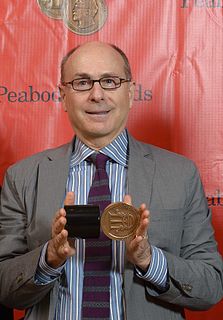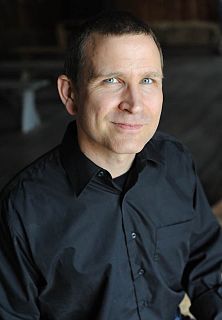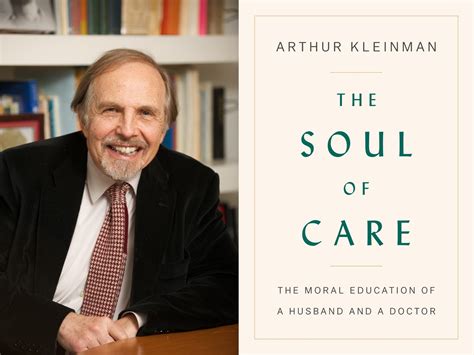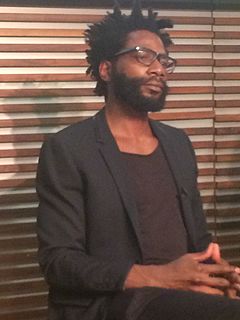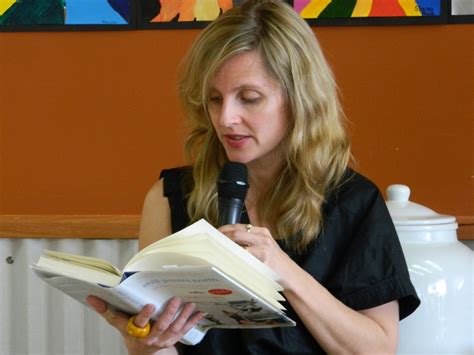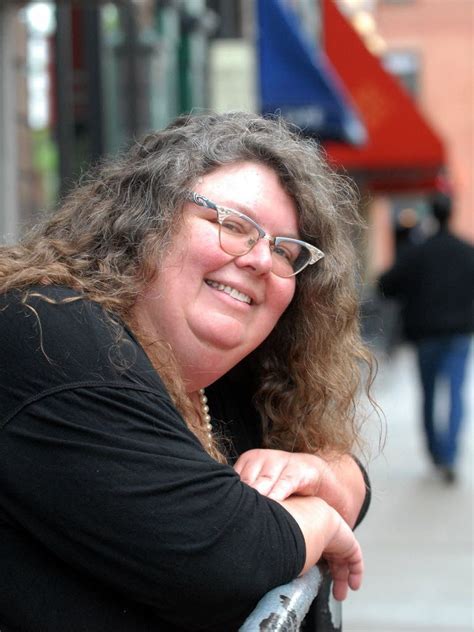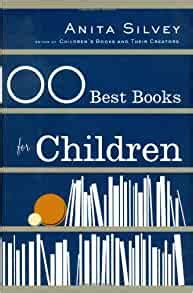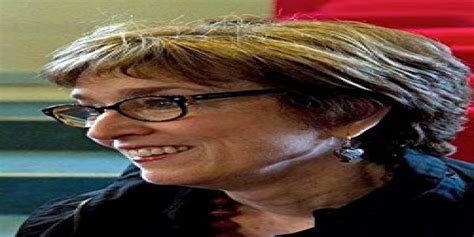Top 302 Essays Quotes & Sayings - Page 5
Explore popular Essays quotes.
Last updated on April 20, 2025.
The cause which is blocking all progress today is the subtle scepticism which whispers in a million ears that things are not good enough to be worth improving. If the world is good we are revolutionaries, if the world is evil we must be conservatives. These essays, futile as they are considered as serious literature, are yet ethically sincere, since they seek to remind men that things must be loved first and improved afterwards.
When I began going to school and learned to read, I encountered stories of other people and other lands. In one of my essays, I remember the kind of things that fascinated me. Weird things, even, about a wizard who lived in Africa and went to China to find a lamp... Fascinating to me because they were about things remote, and almost ethereal.
When I heard the book (Thomas Friedman's latest) was actually coming out, I started to worry. Among other things, I knew I would be asked to write the review. The usual ratio of Friedman criticism is 2:1, i.e., two human words to make sense of each single word of Friedmanese. Friedman is such a genius of literary incompetence that even his most innocent passages invite feature-length essays.
I designed a theater magazine that was full of plays and essays about the theater, and then I worked at a theater school. By osmosis or something, I was learning from reading plays and not being analytical about them, but when I would read them, the joy in me was mostly from imagining them in my head and visualizing them.
Remember that as a vegan, you save dozens of animals every year from the horrors of factory farms, which is great. And when you convince one person to also become vegan, in that moment you double your lifetime impact as a vegan! That's power - and we should use it as effectively as possible. Check out the 'Be a better advocate' videos and essays at www.FarmSanctuary.org.
For years following the death of my mother, I wanted to write about her. I started writing what I thought of as personal essays about growing up as her child, but I never could finish any of them. I think I was too close to that loss, and too eager to try and resolve things, to make her death make sense.
To create anything — whether a short story or a magazine profile or a film or a sitcom — is to believe, if only momentarily, you are capable of magic. These essays are about that magic — which is sometimes perilous, sometimes infectious, sometimes fragile, sometimes failed, sometimes infuriating, sometimes triumphant, and sometimes tragic. I went up there. I wrote. I tried to see.
That afternoon he told me that the difference between human beings and animals was that human beings were able to dream while awake. He said the purpose of books was to permit us to exercise that faculty. Art, he said, was a controlled madness… He said books weren't made of themes, which you could write essays about, but of images that inserted themselves into your brain and replaced what you were seeing with your eyes.
Michael Jackson is an extremely productive ethnographer, a serious reader of phenomenological and existential philosophy, and a remarkable writer at a level that one rarely sees in anthropology. Lifeworlds, unsurprisingly, is no exception. The several essays included here fit into an impressive whole that set out a compelling case for a type of ethnography of which Jackson is one of the masters. The writing is strong and the critical reflections impressive. This book defines an approach to anthropology that is resonant enough to challenge the leading models of our time.
I grew up poor in crappy situations... various crappy situations. What kept me sane was reading and music. I had so many different literary tastes growing up, be it fiction like Stephen King or Piers Anthony or non-fiction like reading Hunter S. Thompson essays or reading the Beats. I was a huge fan of the Beat movement.
Autobiographical writings, essays, interviews, various other things... All the non-fiction prose I wanted to keep, that was the idea behind this collected volume, which came out about few years ago. I didn't think of Winter Journal, for example, as an autobiography, or a memoir. What it is is a literary work, composed of autobiographical fragments, but trying to attain, I hope, the effect of music.
As for not getting things right: I constantly rerun social situations/conversations I experience/have throughout my head, and I'm always writing them down in notebooks or in word documents/the Internet. I feel like these habits and a generally good memory of people/the interactions I have with them (due to studying people having always been my main interest in life) have lead me to being very accurate in things I write in stories/essays.
Eleanor Roosevelt loved to write. She was a wonderful child writer. I mean, she wrote beautiful essays and stories as a child. And Marie Souvestre really appreciated Eleanor Roosevelt's talents and encouraged her talents. Also, she spoke perfect French. She grew up speaking French. She's now at a french-speaking school where, you know, girls are coming from all over the world. Not everybody speaks French.
Doubt is my boon companion, the faithful St. Bernard ever at my side. Whether writing essays or just going about daily life, I am constantly second-guessing myself. My mind is filled with 'yes, buts,' 'so whats?' and other skeptical rejoinders. I am forever monitoring myself for traces of folly, insensitivity, arrogance, false humility, cruelty, stupidity, immaturity and, guess what, I keep finding examples. Age has not made me wiser, except maybe in retrospect.
I liked to write from the time I was about 12 or 13. I loved to read. And since I only spoke to my brother, I would write down my thoughts. And I think I wrote some of the worst poetry west of the Rockies. But by the time I was in my 20s, I found myself writing little essays and more poetry - writing at writing.
A good many of my poems over the years have alluded to or taken on the political. Stevens has a line in one of his essays: "Reality exerts pressure on the imagination." Inevitably what is omnipresent in the culture exerts its pressure on our imaginations to respond to it, even if indirectly. But in this case the backdrop of 9/11, coincident with the breakup of a marriage, the finding of new love, some kind of personal cataclysm... all of those were forces informing the poems in some way.
Photography was increasingly being seen as something outside the art world. As a sort of illustration. They just fired the director of photography at the Sunday Times Magazine - that's where everyone went with their photo essays in the '60s, '70s, and '80s. It was the place to get published. It is an issue. And I feel it. There's no budget. The budget-holders are very often people who've been to the professional colleges where art is not taught. So art as a part of education is something that's missing - since Thatcher's day, anyway.
Gunn would be an important figure-rewarding, delightful, accomplished, enduring-in the history of English-language poetry even were his life not as fascinating as it now seems; he would be an important figure in the history of gay writing and in the history of transatlantic literary relations even were his poetry not so good as it is. With his life as it was and his works as they are, he's an obvious candidate for a volume of retrospective and critical essays, and this one is first-rate.
About 70% of what I've written about is centered on the clashes and conformities between the emerging life and physical sciences and older metaphysical frameworks in the 17th and 18th centuries. The other 30% consists of one-off essays or researches into other intriguing contemporary topics such as visual experience, aesthetics, social justice issues, and the epistemology of moral knowledge.
My presence isn't simply about "character" - I'm present in every part and particle of the thing, in the sound and rhythm of the sentences, in the shifting tones and the selection of details, in the comedy, the sadness, and the confusion. For the space of an essay, I'm the air you breathe, everywhere and nowhere. With a personal essay, I don't think you'd want it any other way. You ought to have the sense of an encounter, the impression of having met someone. In my essays, for better or worse, that someone is me.
...We may encounter many defeats, but we must not be defeated. That sounds goody two-shoes, I know, but I believe that a diamond is the result of extreme pressure and time. Less time is crystal. Less than that is coal. Less than that is fossilized leaves. Less than that it's just plain dirt. In all my work, in the movies I write, the lyrics the poetry, the prose, the essays, I am saying that we may encounter many defeats - maybe it's imperative that we encounter the defeats - but we are much stronger than we appear to be and maybe much better than we allow ourselves to be.
At the time I was first writing the stories/essays that appear in Oedipus Wrecked, I was still under the impression that people would be delighted to see their name in print. I overlooked the fact that I was writing about intimate matters, and people are a bit touchy about airing their private lives in such a public fashion. Especially when it's done without their consent.
The poet Amanda Nadelberg puts it nicely in an interview when she says "often what I listen for in poems is a sense that the writer is a little lost, not deliberately withholding information or turning on the heavy mystery machines, but honestly confounded - by the world? isn't it so? - and letting others listen in on that figuring." That's what engages me - the mind in motion, the drama of someone in the process of thinking - and it's the elusive mystery of those movements that I hope to capture in my essays.
I started work on my first French history book in 1969; on 'Socialism in Provence' in 1974; and on the essays in Marxism and the French Left in 1978. Conversely, my first non-academic publication, a review in the 'TLS', did not come until the late 1980s, and it was not until 1993 that I published my first piece in the 'New York Review.'
When I applied to Stanford, I applied for graduate work in the PhD program, not to the creative writing program, mostly because though I had some vague ambition of becoming a writer and I was trying to write poems and essays and stories, I didn't feel like I was far enough along to submit work to some place and have it judged.
Nowadays I imagine people find freer and more accepting venues in blogs, on Tumblr and Instagram and Facebook, in the riot of shouting that trails in the wake of every news story. So there's always the pandemonium of the Internet, if you need to get your lunatic opinions out in public. I find most of that stuff a little insane-making and my preference is to encounter personal essays in the relatively sedate and stable universe of print, in literary quarterlies, magazines and books. But I'm sure you can find plenty of good stuff in lonely outposts all across the World Wide Web.
Through panel moderations and talks around culture, politics and identity I gradually gained opportunities to write in my own voice and not that of the brand. I'm interested in a lot of the languages that drive our culture. I'm interested in user experience as language or how societal malaise takes root. So through essays and short stories I began exploring some of these things.
If these Essays were worthy of being judged, it might fall out, in my opinion, that they would not find much favour, either with common and vulgar minds, or with uncommon and eminent ones: the former would not find enough in them, the latter would find too much; they might manage to live somewhere in the middle region.
So avoid using the word 'very' because it's lazy. A man is not very tired, he is exhausted. Don't use very sad, use morose. Language was invented for one reason, boys - to woo women - and, in that endeavor, laziness will not do. It also won't do in your essays.
What you do today is important, because you are sacrificing a day of your life for it.
Anger is an acid that can do more harm to the vessel in which it is stored than to anything on which it is poured.
John Marks Templeton has achieved exemplary success in both business and philanthropy. For Looking Forward he has assembled a diverse and remarkable group of experts in their fields-including the environment, medicine, the physical sciences, religion, the family, and international relations-and contributed two stellar pieces as well. Together these essays dispel fashionable pessimism and show how the world can progress-and is progressing-toward a better future.
In all my work, in the movies I write, the lyrics, the poetry, the prose, the essays, I am saying that we may encounter many defeats - maybe it's imperative that we encounter the defeats - but we are much stronger than we appear to be and maybe much better than we allow ourselves to be. Human beings are more alike than unalike.
We tilt our heads back and open wide. The snow drifts into our zombie mouths crawling with grease and curses and tobacco flakes and cavities and boyfriend/girlfriend juice, the stain of lies. For one moment we are not failed tests and broken condoms and cheating on essays; we are crayons and lunch boxes and swinging so high our sneakers punch holes in the clouds. For one breath everything feels better. Then it melts. The bus drivers rev their engines and the ice cloud shatters. Everyone shuffles forward. They don't know what just happened. They can't remember.
I am far from any intention to limit curiosity, or confine the labours of learning to arts of immediate and necessary use. It is only from the various essays of experimental industry, and the vague excursions of mind set upon discovery, that any advancement of knowledge can be expected; and though many must be disappointed in their labours, yet they are not to be charged with having spent their time in vain; their example contributed to inspire emulation, and their miscarriage taught others the way to success.
I grew up poor in crappy situations various crappy situations. What kept me sane was reading and music. I had so many different literary tastes growing up, be it fiction like Stephen King or Piers Anthony or non-fiction like reading Hunter S. Thompson essays or reading the Beats. I was a huge fan of the Beat movement.
Penning an advice column for the literary website The Rumpus, [Strayed] worked anonymously, using the pen name Sugar, replying to letters from readings suffering everything from loveless marriages to abusive, drug-addicted brothers to disfiguring illnesses. The result: intimate, in-depth essays that not only took the letter writer's life into account but also Strayed's. Collected in a book, they make for riveting, emotionally charged reading (translation: be prepared to bawl) that leaves you significantly wiser for the experience. . . . Moving. . . . compassionate.
In American Romances, her new book of essays, Rebecca Brown has a voice that is full of pop references, family stories, and the fruits of a lifetime of -- in her perfect phrase - extreme reading. The voice is a hoot, and it is dead serious. This is writing with exquisite control, fully up to the task Brown takes on of playing a fierce game of beach ball with deep problems of American (and personal) history and identity.
The essayist is a self-liberated man, sustained by the childish belief that everything he thinks about, everything that happens to him, is of general interest. He is a fellow who thoroughly enjoys his work, just as people who enjoy bird walks enjoys theirs. Each new excursion of the essayist, each new 'attempt,' differs from the last and takes him into new country. This delights him. Only a person who is congenitally self-centered has the effrontery and the stamina to write essays.
I'm a privileged person, I feel privileged because of who I am. I write books, I write novels, I write essays and I teach and I go from university to university. I'm one of the old, but I still go around, but I only see those who are not like that, I don't see the junk youth. I only meet students, and even those who are not formally at the university, if they come to listen to me, they come to read me, it means they are not junk students.
In the short stories - if I can make a very lumpy contrast - in the short stories I feel like the lives of the people have a kind of prior desperation and a prior need and my longing is for the story and their lives to somehow come together, even if not finally or forever, to face something; and it felt like a lot of the time with the essays I was wading into situations where there was an assumption of finality of understanding, and I felt like I could wade into any understood moment and tear it apart and make it fall apart.
The essay community should have hundreds of anthologies from hundreds of different perspectives that are constantly introducing us to new writers, new work, and new visions for our genre. The whole spirit of these anthologies is that there should never be a last word in how essays are interpreted or what they can be.
I am careful about fiction. A novel is not a tract or an essay. If I want to write about land reforms, or Hindu-Muslim relations, or position of women, I can do it as it affects my characters as in 'A Suitable Boy.' I could only write about issues specifically through essays. But I'll do that only if I have something worthwhile to say.
I think I got into travelling because it was so not in my blood, so against my tendency to just stay put because my dad just hated going on holidays, because, as I've said in many essays, the thing that he hated more than anything else in life was spending money. And as soon as you leave your home, you're spending money.
If you stuff yourself full of poems, essays, plays, stories, novels, films, comic strips, magazines, music, you automatically explode every morning like Old Faithful. I have never had a dry spell in my life, mainly because I feed myself well, to the point of bursting. I wake early and hear my morning voices leaping around in my head like jumping beans. I get out of bed to trap them before they escape.
Rather than thinking of sound and sense in my essays as two opposing principles, two perpendicular trajectories, as they are often considered in conversations around translation, or even as two disassociated phenomena that can be brought together to collaborate with more or less success, I think of sound as sense. Sound has its own meaning, and it's one of the many non-semantic dimensions of meaning in language. I want to emphasize is the formal dynamic between language-as-information and language-as-art-material.
For almost a quarter of a century, Teen Ink has been encouraging young people to write - and then has published those pieces. These heartfelt essays and poems explore the issues faced by teenagers today. I applaud their efforts because they not only help young people deal with their own lives but also encourage the budding authors of the next generation.
I've been thinking a lot about why it was so important to me to do The Idiot as a novel, and not a memoir. One reason is the great love of novels that I keep droning on about. I've always loved reading novels. I've wanted to write novels since I was little. I started my first novel when I was seven.I don't have the same connection to memoir or nonfiction or essays. Writing nonfiction makes me feel a little bit as if I'm producing a product I don't consume - it's a really alienating feeling.
I try to be aware of what I'm concerned about, aware of how I feel about myself in the world, aware of how I feel about the issues of the day, but I guess I don't want to write essays in my head about my craft and maybe it's because I teach and talk about craft of other writers as a reader. I feel the moment I start doing that is when it's going to kill me.
Sadly and criminally, many self-indulgent inactive pacifists have shunned me for being an outspoken supporter of X's 'by any means necessary' philosophy, even though NOT supporting me means you are supporting violence since millions of meat, dairy, egg and honey-eaters who would have had a chance to see my speeches, essays or advertisements continue along their violent paths unchallenged.
I never really wanted to be a daily critic who goes out every night and writes 300 word reviews, I wanted to write essays. And that gave me the luxury to be able to go out and if it was lousy, I could just say, well the hell with that, I'll go to hear something else, or, I'll go tomorrow night; I as writing for a weekly.
A key text for me is James Baldwin's essays. And, in particular, his essay Stranger in the Village. It's a text that I've used in a lot of paintings. The essay is from the mid-'50s, when he's moved to Switzerland to work on a novel, and he finds himself the only black man living in a tiny Swiss village. He even says, "They don't believe I'm American - black people come from Africa." The essay is not only about race relations, but about what it means to be a stranger anywhere.
Actually, I've taught creative writing in Turkey, at an English language university, where the students were native Turkish speakers, but they were writing their essays in English, and they were very interesting - even the sense of structure, the conventions of writing, the different styles of writing.
I never start with what lots of people think of as a subject or a theme. They're school words, not art words. So, writing essays busts my arse because the art is in addressing the subject. I find it really difficult and monstrously time-consuming. In an essay I need to employ my imagination but it's indentured in a way it's not when I'm free to make everything up.
Talking Taboo is a groundbreaking book. This chorus of bold female voices is presenting the church with an opportunity to engage real but all too frequently avoided or unseen issues impacting countless Christian women today. Their candid essays cover a wide spectrum of perspectives. Readers will resonate with some and be shocked by others. Talking Taboo took courage to write. Reading taboo takes courage too. So buckle up and brace yourself for an eye-opening but vitally important read!
There are a lot of college writing textbooks that will include essays and short stories, and after reading the story or essay, there will be questions such as "Have YOU Had any experience with a pedophile in YOUR family?" or "When was the last time you saw YOUR mother drunk?" and they're just really good at prompting stories. You answer the question, and sometimes that can spring into a story.
I'd worked on a series of Chicken Soup for the Teenage Soul books called The Real Deal for HCI books, which featured essays and poems from teens.Finding the right authors for the series has been no easy feat, mostly because I'm looking for a perfect blend of a teen girl with an interesting story or hook, fantastic writing talent, and the confidence to commit to writing a 30,000+ word book in a matter of months. It's a huge commitment and I recognize that, so the fit has to be there from all these different angles.




